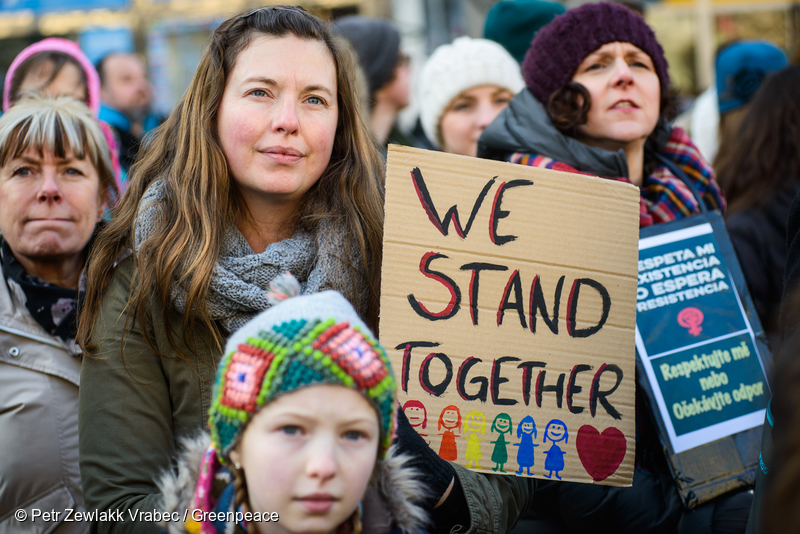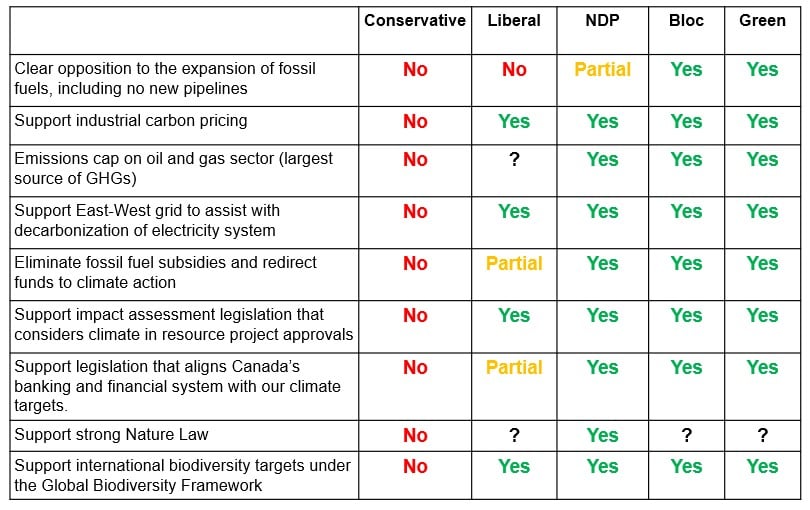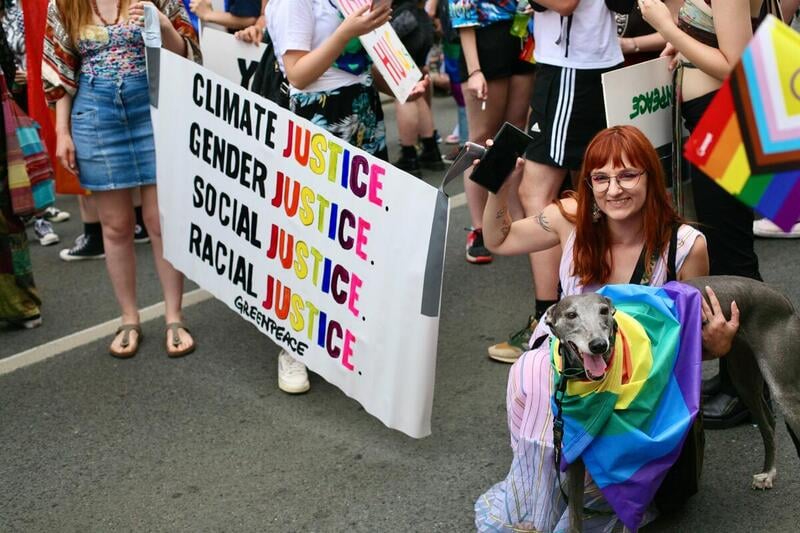
When I first saw the story of an oil & energy company printing a sticker sexualizing a teenager — also known as Greta, the climate activist — I tried to imagine the men at X-Site Energy that were around the table (I assume there were no women) , when making the decision to proudly print this sticker with their logo on it.
How did they decide it was ok, then worth pouring resources into printing and distributing a sticker intended to humiliate a young environmental defender? How did they feel legitimized to take this decision? These questions deserve attention in our day and age.
As Head of Digital at Greenpeace Canada, I spend a lot of time navigating digital spaces and I see them everyday: hateful, sexist discourses, being publicly legitimized by various online personalities and communities. This is not the first time we see Greta, McKenna, Ocasio-Cortez — and many other women and girls taking a stand for the Planet — targeted by orchestrated anti-feminist, climate denier bullies.
We all remember Trump’s tweet telling Greta to “chill-out” and Trump staffer Steve Milloy recently calling Thunberg a “teenage puppet,” claiming that “the world laughs at this Greta charade.” Why are these grown men feeling so threatened and insecure? Because a growing movement of people are not laughing at all, on the contrary, they are profoundly concerned for their families’ future as it becomes clear we are in a climate emergency.
Behind every Trump-style tweet stand the few privileged men, with a global capitalist system rigged in their advantage. And they are feeling threatened by loss of power. Their outbursts are not about Greta, they are about protecting a system that guarantees male privilege. And we might see this worsen before it gets better… Researchers Anshelm & Hultman argue that “reactionaries motivated by right-wing nationalism, anti-feminism, and climate denialism are increasingly overlapping.” [1]
It can be argued that online dynamics are contributing to legitimize misogynistic currents. Bubbles of opinions (not facts) are created, and what might have been a whisper of a deranged thought, is normalized, and turned into a full blown public conversation. We all remember a misogynistic online incel or “involuntary celibacy” community, where the man behind the shocking Toronto van attack, targeting women in 2018, found acceptance. These communities are coexisting in a world where the #MeToo and the climate mouvement are globally reshaping the status quo of gender relations and power dynamics: all challenging the way of life of the privileged. The challenge is on and power is not giving up without a fight.
Attacks on activists are not new, but they are increasing at an alarming rate. In 2019, research showed that murders of environmental defenders have doubled in the past 15 years. I was working with Oxfam in Peru on land rights when Berta Cáceres, a winner of the Goldman prize for environmental defenders, was tragically killed in 2016. This happened after a long battle to stop the construction of an internationally financed hydroelectric dam on the Gualcarque river in western Honduras, considered sacred by the Lenca people. The rising environmental stress of the global demand for resources is pushing extractive industries to remote regions, where attacks are too often met with impunity. Adding a gender lens to the attacks brings us back to the X-Site Energy attack on Greta, a young woman.
Journalist Martin Glen argues that “Women exercising authority of any sort endure a certain amount of gender-based vilification, and climate change advocacy inevitably amplifies it.” [2] The good news is that power is feeling threatened. The privileged are watching, paying attention, and feeling enough change in the patriarchal and economic power dynamics they hold onto so dearly, that they are reacting. We will have to continue the conversation on polarization, extremism, gender, climate, but one thing is certain: wind of change is in the air.
I think we are winning, Greta.
[1] & [2] Martin Glen, The New Republic: The Misogyny of Climate Denier
References
Chatelaine: Women Fighting Climate Change Are Targets For Misogynist
International Journal for Masculinity Studies: A green fatwā? Climate change as a threat to the masculinity of industrial modernity
National Post: Greta sticker that drew outrage in Alberta not child pornography: RCMP
The Globe and Mail: Toronto van attack: How you can help and what we know so far
The Guardian: Berta Cáceres: seven men convicted of murdering Honduran environmentalist
The Guardian: Environmental activist murders double in 15 years
The New Republic: The Misogyny of Climate Deniers



